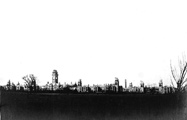More resources
Archives, libraries & museums
This page presents some of the archival and library resources available on the study of welfare history along with some museums that hold collections in the area.
The Workhouse Museum, Ripon
Housed in the austere Male Vagrants section of the old workhouse, this museum provides an insight into the ninteenth-century workhouse, where many workers spent their last days undertaking such tasks as spinning, shoemaking and oakum picking. Almost all of the original buildings of the 1854 Ripon Union Workhouse have survived, and provide an atmospheric setting for photographic displays examining Victorian poverty, as well as holding a wealth of information on other Union workhouses in Yorkshire.
Address: 75 Allhallowgate, Ripon, Yorkshire, HG4 1LETel: 01765 690799
London Metropolitan Archives
London Metropolitan Archives (LMA) is the archive repository for many London-wide organisations. The archives of the City of London Corporation (COL) and the former Greater London Council (GLC), London County Council (LCC), Middlesex County Council (MCC) and their predecessors are held here. LMA also holds records for many religious, public, business, local authority and other organisations based in London. The dates of items that can be found here range from medieval to the present day, and the collections are constantly expanding.
Address: 40 Northampton Road, Clerkenwell, London EC1R 0HBTel: 020 7332 3820
The Foundling Museum, London
The Foundling Hospital, established by philanthropist Captain Thomas Coram in the 1740s, was London's first home for abandoned children, and is now commemorated in a museum adjacent to the original hospital site. The hospital attracted the attentions of London's wealthy classes due to the work of co-founders William Hogarth and George Frederic Handel. Both Hogarth and Handel remain a strong presence in the museum; alongside artefacts telling the childrens' stories, visitors can see Hogarth's March of the Guards to Finchley, Handel's will and a fair copy of Messiah.
Address: 40 Brunswick Square, London, WC1N 1AZTel: 020 7841 3600
Bethlem Royal Hospital Archives and Museum Service
Bethlem Royal Hospital (or Bedlam, as it is more commonly known) was founded in 1247 as the priory of St Mary of Bethlehem and has undergone many changes over the centuries. Bethlem Royal Hospital Museum tells the story of the hospital and places a strong emphasis on art and mental health, holding collections by Louis Wain, Richard Dadd and Thomas Hennell. The archives hold material from 1559 onwards, including lantern slides, photographs, clinical records and building plans (though there are restrictions on more recent patient records).
Address: Monks Orchard Road, Beckenham, Kent, BR3 3BXTel: 020 3228 4227
Trades Union Congress Library Collections
The TUC Library, established in 1922, is a major resource for the study of trade unions and collective bargaining, including documents relating to working conditions across Britain and - to a lesser extent - Europe. The Library has a large collection of pamphlets from pressure groups and campaign movements, some dating back to the nineteenth century.
Address: Holloway Road Learning Centre, London Metropolitan University, 236 - 250 Holloway Road, London, N7 6PPTel: 020 7133 2260
Metropolitan and City Police Orphans Fund Research Archive
From its foundation in 1870 to its closure in 1937, 2,807 children passed through the Metropolitan and City Police Orphanage. The Fund's museum contains a number of artefacts from the orphanage, whilst the archive is a valuable social history resource, containing details of children admitted, photographs and other documents.
Address: 30 Hazlewell Road, Putney, London, SW15 6LHTel: 020 8788 5140
High Royds Hospital Archive
The High Royds Hospital archive is a moving tribute to the memory of the patients and staff of the High Royds Asylum which opened in 1888. Part architectural and part social history, the site contains a huge amount of archive material offering an insight into mental health from the late nineteenth to the twentieth century. Handbooks on psychiatric treatments, original hospital ephemera and archive photographs are available to browse, alongside the memoirs of those who had first-hand experience of the hospital. The stunning architecture of the hospital is documented in a variety of photographs, with an emphasis on the redevelopment of the site for housing. Sister websites on Stanley Royd asylum and the Meanwood Park colony also hold a huge range of material, allowing for a detailed picture of mental health care in the Yorkshire area.
Email: highroyds.archive@gmail.comOctavia Hill's Birthplace House
Octavia Hill, co-founder of the National Trust, was a Victorian pioneer of affordable housing and is seen by many as the founder of modern social work. Her Birthplace House documents her life and work, with changing exhibitions complementing beautifully restored interiors in a Georgian riverside house.
Address: 8 South Brink, Wisbech, Cambridgeshire, PE13 1JBTel: 01945 476358

